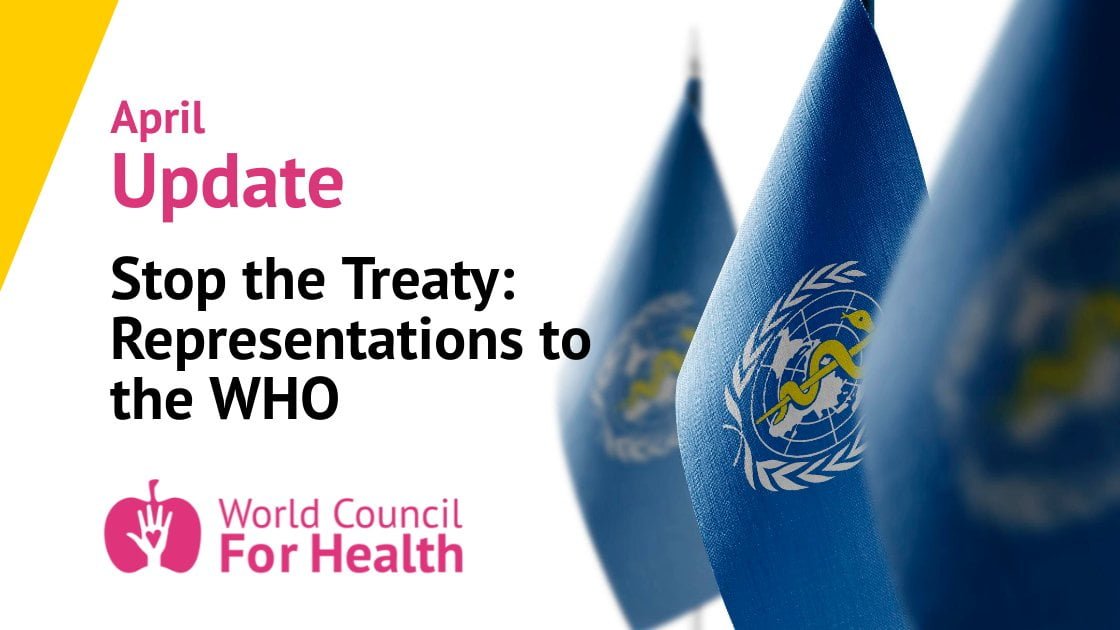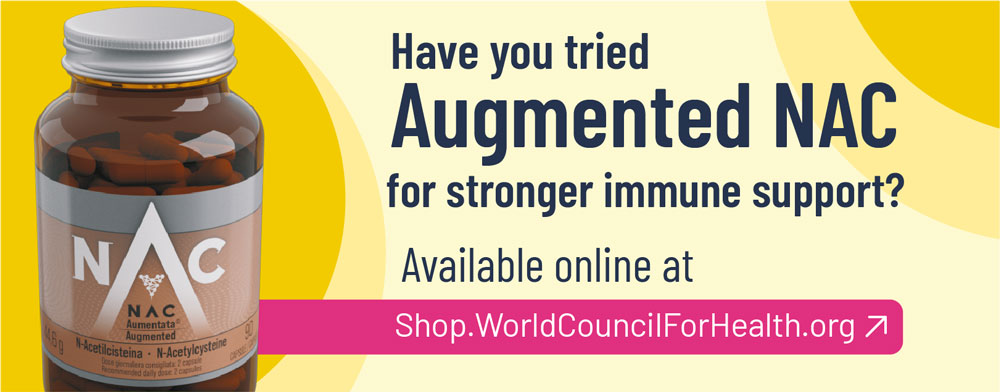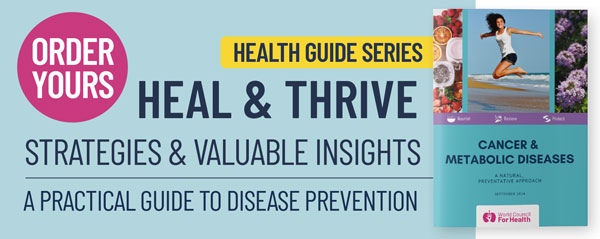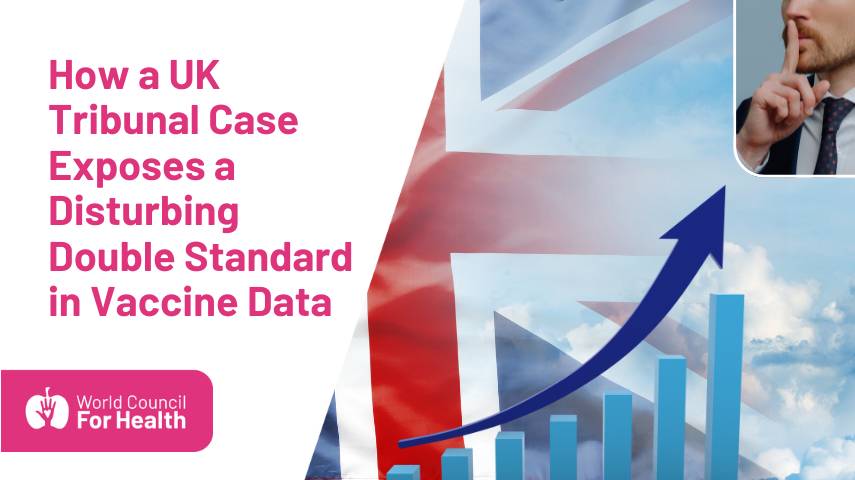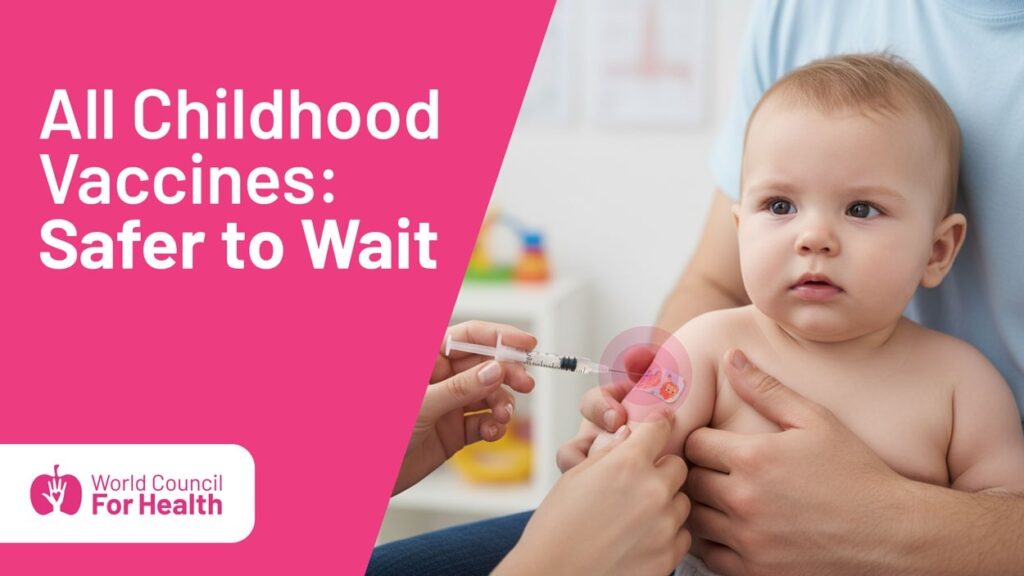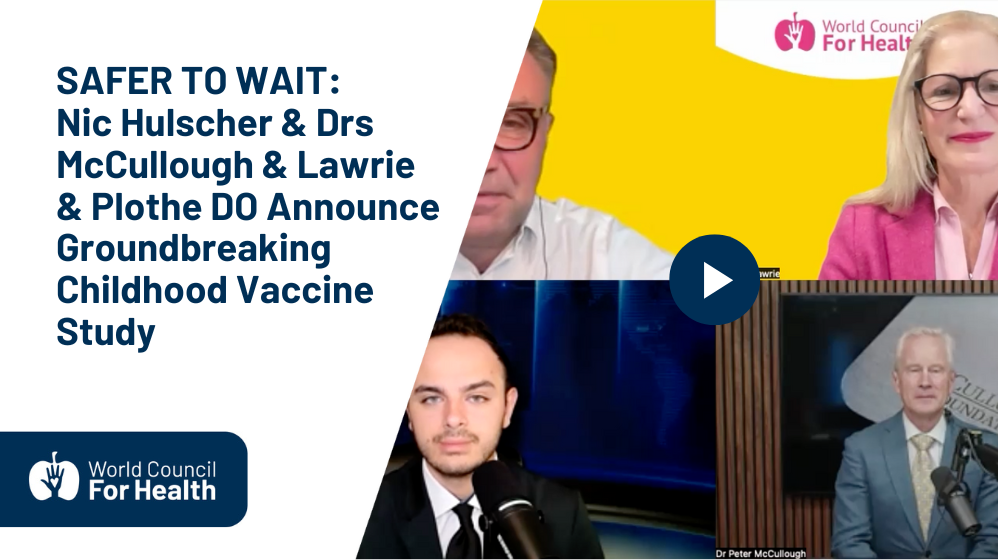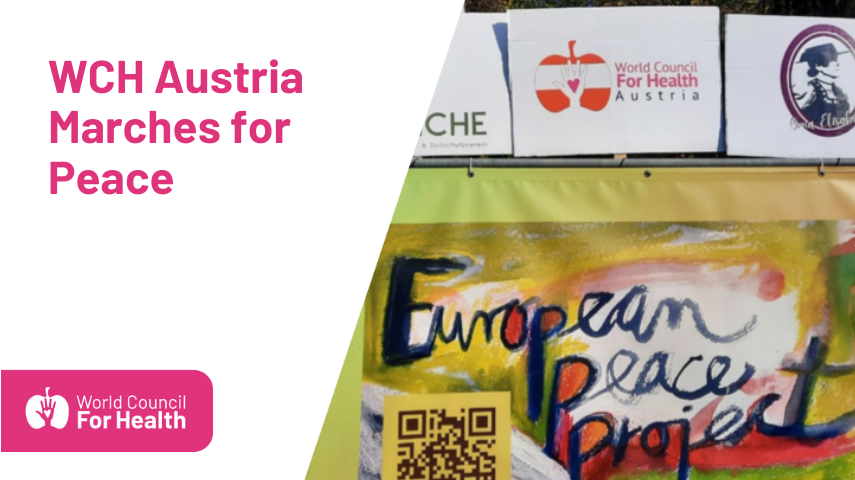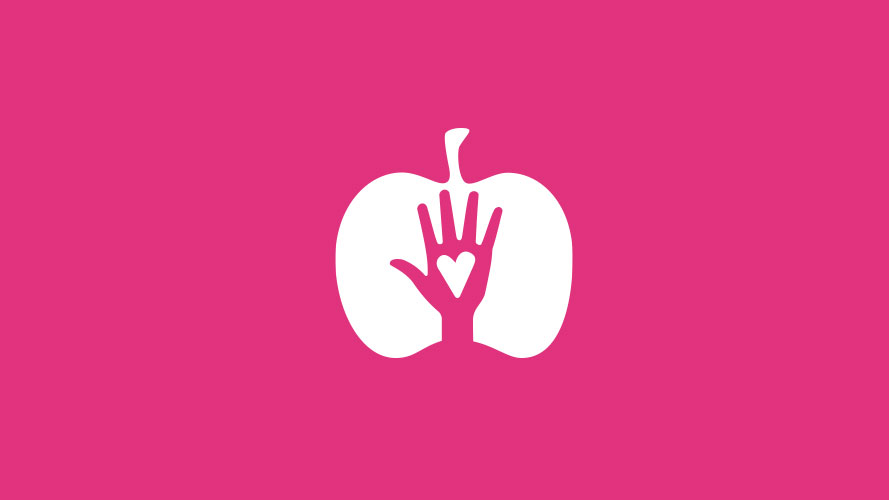The World Council for Health (WCH), collectively with the public and our coalition partners, made representations to the World Health Organization (WHO) last month during a short public participation process. Here are some of them.
We’ll have more updates on the next steps to challenge this global pandemic agreement that would give the World Health Organization undemocratic rights over every participating nation and its citizens.
In the event of a ‘pandemic’, the WHO’s proposed agreement would replace every country’s constitution. In April 2022, it gave just five days for the public to voice their opinion by contributing written or video submissions.
On April 18, the WCH Law and Activism Committee (LAC) presented on the success of the #StopTheTreaty campaign during the WCH General Assembly Meeting #37.
In the video below, hear Dustin Bryce’s statement on behalf of WCH Coalition Partner Interest of Justice (Costa Rica), Shabnam Palesa Mohamed’s statement contributed on behalf of WCH Coalition Partner Transformative Health Justice (South Africa), and Dr Tess Lawrie’s statement from the World Council for Health.
Dr. Tess Lawrie, co-founder and steering committee member of the World Council for Health, said the experience left her ‘shaken’.
There were 48 people on the call at the time I tuned in. Sixteen of them were WHO staff. Others were from UNAIDS, the Coalition for Epidemic Preparedness Innovations (CEPI), the UN Environment Programme, the Association of Southeast Asian Nations (ASEAN).
I told them that the World Council for Health does not believe a pandemic treaty is necessary and would not benefit the people of our world. I shared sixteen recommendations which included the need for transparency, a return to open debate and dialogue, respect of our inalienable human rights and civil liberties and the sovereignty of all people and nations. I called for the right to choose and refuse treatments, or medical interventions, including access to repurposed medications. I also called for a rejection of mass experimentation and social engineering, and discrimination based on medical status or choice. And, I enjoined the WHO to promote restoration for harms from medical interventions.
I said our piece, knowing that I speak for all of us – all of you.
Will it make a difference? Honestly, I don’t know. Over the last two days the WHO will have had fewer than 100 video presentations, perhaps as few as 70. Most are asking for more measures, not fewer.
This is what we are up against. This is what we must fight. If you’re feeling despondent or worried after reading this, I understand. I felt that way too. But we have to remember our power, and we have to use that power as much as we can.
Dr. Tess Lawrie
The WCH action page was shared so widely that WHO’s website reportedly crashed, as did our own website on April 12, 2022. In the same week, Mention.com measured the #StopTheTreaty campaign’s reach to 420 million people across Twitter, blogs, and other channels for that week.
Representation on WHO’s pandemic treaty: Dr. Tess Lawrie’s Full Statement
The World Council for Health believes that good health, human rights, autonomy, national sovereignty, free speech, and right of association are central to any agreement in the interests of the people. Simultaneously, conflicts of interest, corruption and censorship are barriers to public trust.
While the WCH does not believe a pandemic treaty is necessary, nor would it truly benefit the people of our world, we are aware that the WHO intends to push through a treaty, and therefore share 16 recommendations
1. On Awareness, inter alia:
- Open debate and varied perspectives and opinions must be normalised
- A return to traditional & scientific definition of “Pandemic” is essential
- Transparency on models and tests is the basic tenet of any agreement
- Cost benefit analysis must be made public before any recommendations
2. On Preparedness, inter alia:
- All conflicts of interest must be immediately disclosed to the public
- Documents and data relevant to decision-making must be disclosed
- Open and uncensored dialogue must include critical non-state actors
- Traditional and natural health care must be respected by the WHO
3. On Response, inter alia:
- Inalienable human rights and civil liberties must be respected
- Sovereignty of all people and nations must be unfailingly upheld
- Public participation in decision-making must be robust and clear
- The right to choose and refuse treatments or medical interventions, including access to repurposed medications, must be respected
- Discrimination based on medical status or choice must be rejected
- Mass experimentation and social engineering must be rejected
- States of emergency, lockdown, and emergency use authorizations are the decisions of sovereign counties, in a public participation process
- Restoration for harms from medical interventions must be promoted
In Conclusion:
The current public participation process by the WHO, announced just last week, does not uphold access to information, the right to make decisions, and other civil rights democratic pillars. Nevertheless, all submissions are now part of the public record, and any valid agreement must include terms that uphold natural law, the Siracusa principles, and the Hippocratic Oath.
I thank you.
Dr. Tess Lawrie, Co-Founder, World Council for Health
WCH Steering Committee Member
Shabnam Palesa Mohamed’s Statement for Transformative Health Justice, World Council for Health Coalition Partner
Transformative Health Justice is a health advocacy non-profit organization in South Africa. We advocate for safe, effective, and affordable health care, repurposed medicines, and for product safety, efficacy and affordability.
Our representation is summarized in 6 concise points:
1. Sovereignty of the African continent must be respected. This includes:
- Natural and traditional medicine
- Our natural immunity to C19
- Our experience in addressing disease
2. Conflicts of interest must be declared by the the WHO, it’s funders, and its public relations and media stakeholders.
This is especially because Africa is a highly contested and corrupt space for Big Pharma, which has a history of experimenting on our children, without informed consent.
3. WHO must insist that Big Pharma:
- Release all C19 injection contracts,
- Not be allowed to hold clinical or safety data back from the public, and
- Compensate people for jab and other product medical injuries during C19.
Further, the WHO should not be accepting funding from Big Pharma, conflicted philanthropy investors, and related stakeholders with influence.
4. Censorship and medical apartheid or discrimination must be strongly discouraged by WHO, as they violate natural law and democratic constitutions.
This is particularly obvious in South Africa, where a previously protective constitution has been subverted during the C19 chapter.
5. No undemocratic treaty can be held as legally binding by WHO, nor should sanctions be imposed against any country that decides it does not want to abide by certain or all articles in the proposed treaty, the International Health Regulations, or any other ‘agreement’ related to our health.
6. Without a proper public participation process, any agreement is unconstitutional, unlawful and invalid.
Therefore, the WHO is ethically and legally obliged to create a proper and robust public participation process, that reaches the poor, the illiterate, and those who are critical of the WHO.
Shabnam Palesa Mohamed
WCH Steering Committee Member, WCH Law and Activism Committee co-chair
Dustin Brice for Interests of Justice, WCH Coalition Partner
All limitations to write in an emergency shall conform to the conditions set in the Siracusa principles.
Control of the legality of emergency power by independent citizen bodies is in the public interest to prevent imbalance of power.
No treaty can be binding which conferred upon who the power to issue or enforce pandemic guidance which mesa Plant the Nations constitution, written definitions and sovereign legislation.
Pre-determination and punishment of misinformation with no written law defining misinformation backed by science deniers due process and is prohibited by law declared emergencies are no exception.
Persecution and censorship of diversity of opinion by the world health organization, trusted news initiative, private actors or state is expressly prohibited.
The WHO must immediately declare all yearly funders with full transparency and allow for independent oversight with the ability to mediately remove all conflicts of interest.
Centralization of national health data, biotechnology, AI, big tech and media, poses an international security threat that must be prevented in order to protect all human rights, the human genome and health.
The WHO shall not exaggerate the seriousness of the diagnosis, complicate the treatment, or artificially create alarm situation is in response to spurious interests; if found guilty the member states agree to permanently stop all funding and relationships with the world health organization.
WHO must waive immunity in the event that unjustified damages arise from the use of their guidance or treaty.
A democratic process should be made by the people, rather than an intergovernmental negotiating body to ensure meaningful participation.
Law and Activism Committee member
Did you submit a Representation as a Coalition Partner? Let us know at [email protected] so we can share it here.
According to the the WHO, the next round of written and video representations on their proposed pandemic treaty happens 16-17 June.
Stay tuned for more information on the WHO’s efforts at creating a global pandemic agreement and the proposed amendments to the International Health Regulations – we’ll have a few updates over the next few weeks. Subscribe to the World Council for Health email newsletter for the latest updates.
